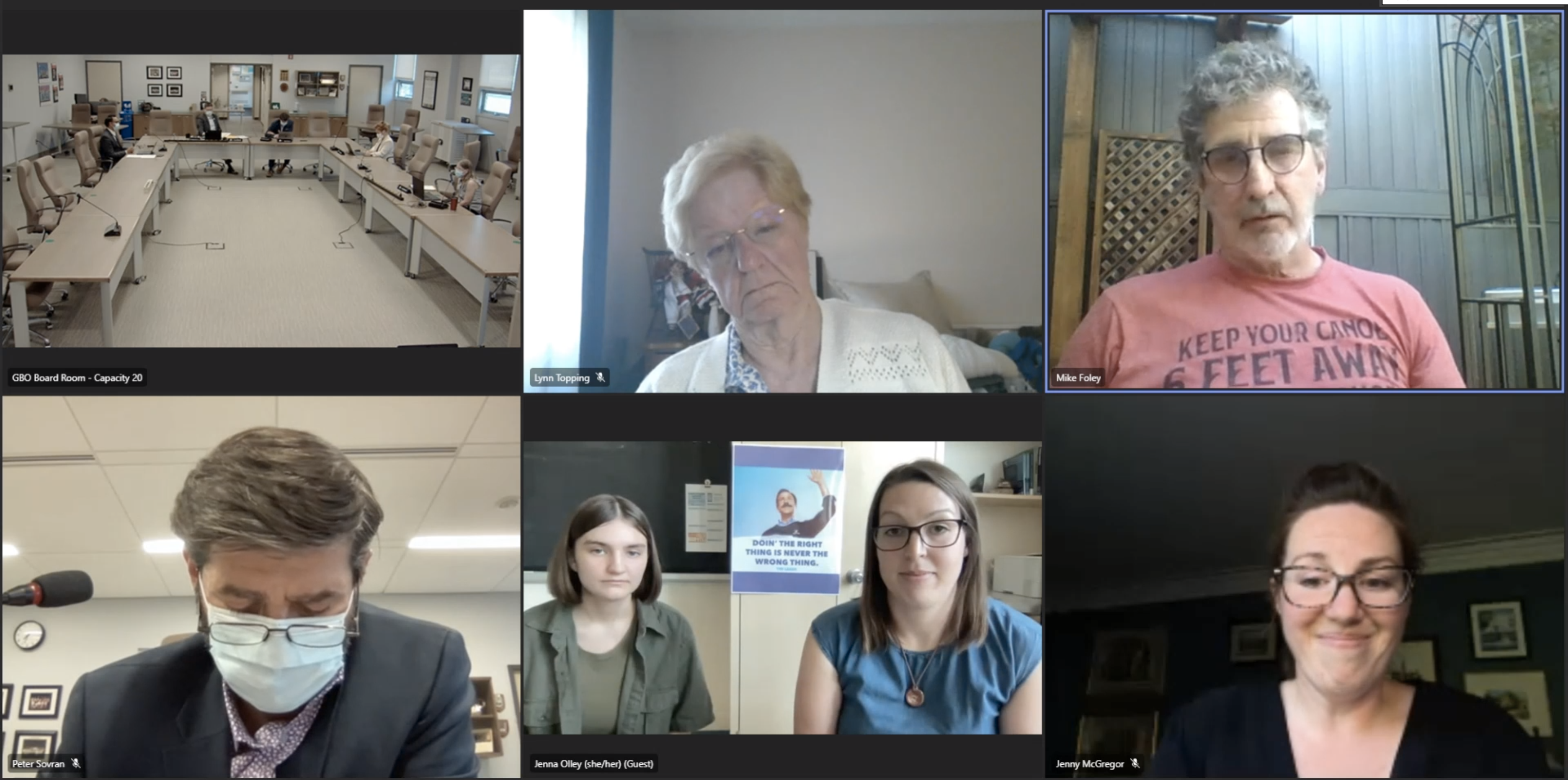GUELPH – A delegation of staff and students is calling on Upper Grand District School Board (UGDSB) officials to declare a climate state of emergency.
At a June 14 business operations committee meeting the delegation also requested that the board hire a sustainability lead to create and implement a path to achieve net zero emissions by 2050.
“We know that our school board has done some amazing sustainability initiatives, but it’s not enough to meet the crisis of what we are facing for today and our students and we know that,” said Centre Wellington District High School (CWDHS) teacher Jenna Olley.
“We need direct action in every school … to show our community that we understand the urgency of this climate crisis and commit to their future.”
The board previously had contracted an environmental sustainability lead but the position was temporary and the role has been left vacant.
Olley noted the role of sustainability lead at the school board is “imperative” to act as the middle person between staff leads and initiatives happening at the school board.
The sustainability lead, she explained, would hold the board accountable, coordinate between curriculum and purchasing contracts and act as a liaison between the board and schools from an operational standpoint.
John F. Ross teacher and eco lead Jenny McGregor said as climate change worsens, she sees the board falling short of its targets.
“We find that this is due to lack of consistent leadership, strong sustainability-focused policies, minimal teacher training or collaboration opportunities and contractual obligations that leave us tied to unsustainable systems,” McGregor said.
“We are still operating within the confines of a school board that has yet to acknowledge that we are in a climate emergency.”
CWDHS student representative Ashley Bell, who conducted a survey at her school, noted roughly 67 per cent of students feel fear or sadness about climate change and about 56% feel anxious.
Also in the survey, 79% said they support or strongly support the UGDSB declaring a climate emergency and 83% said they support or strongly support the board transitioning all schools to 100% renewable energy.
Olley noted that for electricity alone, James McQueen Public School in Fergus had an electricity bill of $1,203 in November 2020 and CWDHS’s electricity bill was $24,542 for October of that same year.
Based on an assessment from Guelph Solar, Olley said they looked at what the board could do at schools if it were to transition to renewable energy.
“We know the upfront costs would be great, but the pay back over a long period of time would be even better,” she noted, adding the transition would bring what is currently about $0.16 per kilowatt hour in energy costs down to $0.05/kwh.
With that, while James McQueen would cost around $291,000 to implement the initial full solar array, the long-term impact would save the board roughly $651,000 over a 25-year period.
In addition, the upfront cost for a full solar array for CWDHS would round out around $700,000, but would save the board roughly $3.7 million in energy costs over 25 years.
The solar panels would be in addition to any current panels the board has implemented, Olley noted, adding that while there are solar panels on some schools, there are not enough to meet the energy needs of the buildings.
“So that is one area that we really need to increase capacity because it’s only doing enough to run a couple of computers throughout the day,” she explained.
When considering global climate change and the effort to reduce the board’s emissions, it’s not enough, Olley added.
“We really need to be bold with our thinking and with our action to invest in those things that people can see and not only make sure that each school has a couple solar panels, but to make sure that they’re fully functional, fully part of the curriculum,” she stressed.
“We need to have these infrastructure things put in place so that our kids can make that connection between what they’re learning in the classroom and what they’re seeing in their community – and right now there’s a huge disconnect between those two.”
Trustees received the delegation for information.




